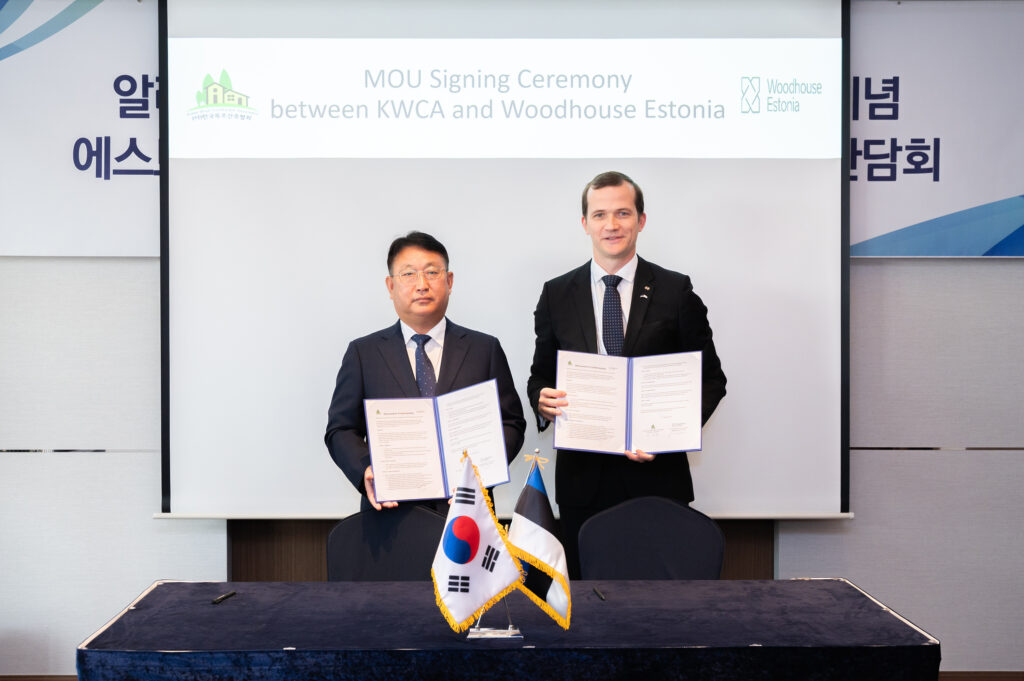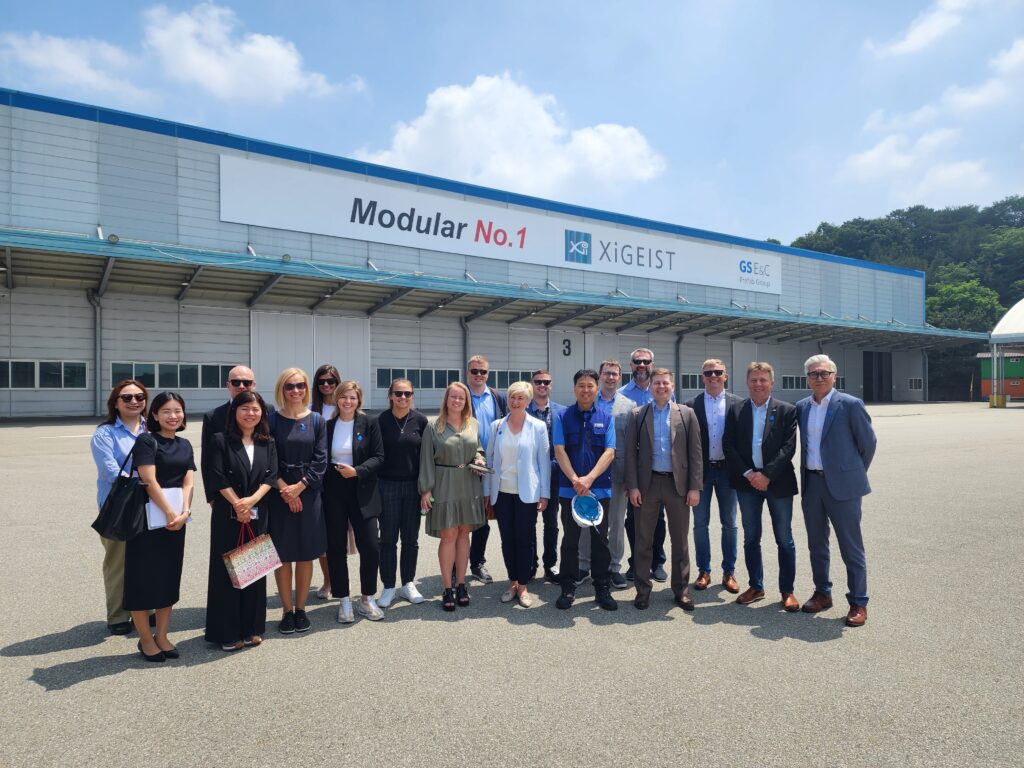The Estonian Woodhouse Association (EWA) and Korean Wood Construction Association (KWCA) have officially entered into a Memorandum of Understanding (MoU) in a signing ceremony held on the 12th of October 2023 in Seoul. This collaboration shares a common vision and principles of cooperation for the development of sustainable, wood-focused construction industry that contributes to the creation of carbon-neutral urban environments.
Contributing to achieving carbon neutrality through the sustainable use of wood and undertaking activities to revitalize prefabricated wood construction are central objectives of the Estonian Woodhouse Association (EWA). This Memorandum of Understanding with the Korean Wood Construction Association aligns perfectly with these goals. In an era where environmental concerns are at the forefront of industry priorities, wood as a renewable resource, is gaining renewed appreciation.
Annika Kadaja, General Manager of Estonian Woodhouse Association, notes that Estonian woodhouse producers are pioneers in designing elegant and functional wooden buildings and structures that fit seamlessly with cityscapes. „Our approach resonates with the global trend towards more eco-conscious living. Estonian woodhouse industry has become a forerunner in the field of prefabricated wood construction.“
Prefabrication not only speeds up construction but also ensures precision, cost-effectiveness, and, most importantly, reduces environmental impact. “We are delighted to find partners on other regions whose vision aligns with ours and who also have experience in factory-based construction. What’s even more significant is the willingness and ability to reshape today’s so-called traditional construction sector,” she adds.

In South Korea, the concept of wooden construction is well-established. They are actively engaged in creating buildings using modular and element construction methods, spanning from private residences and apartment complexes to cross-laminated timber office buildings and educational facilities. At present, there are a 7-storey wooden educational center being completed, and ambitious plans in development of a 24-storey wooden high-rise building. These buildings are set to become landmarks and symbols of wooden urban spaces.
„Collaboration with organizations such as the Korean Wood Construction Association reflects the growing reputation of the Estonian woodhouse sector on an international level and demonstrates our commitment to helping guide the construction industry toward changes. Wood and industrialized construction allows to make a u-turn toward a more sustainable built environment,“ says Vice-Chairman of the Estonian Woodhouse Association, Alo Tamm. This memorandum includes the establishment of domestic standards for prefabricated wood construction and the revision of construction regulations to promote wood in urban areas and create prefabricated wood- construction friendly cities.
In South Korea, there are several global corporations such as Samsung, LG, Hyundai, whose portfolios extend beyond the production of products we are familiar with. Some of the companies within the groups also include modular house factories. The Estonian delegation had the opportunity to visit one of these factories during the summer. Additionally, it’s worth noting that the large Korean corporations have shown interest in collaborating with Estonian house producers on a global scale. “In a situation where the primary markets for Estonian woodhouse producers have declined, the current moment allows for market diversification, and there is no reason why our companies couldn’t explore new business and export opportunities with Korea,” adds Alo Tamm, also a CEO of modular house manufacturer Harmet.

This collaborative effort between Estonian and South-Korean umbrella organizations is a significant example of international cooperation to jointly promote timber construction. But not only, it is a step and an opportunity to bring Estonian house producers closer to global market partners.
The Estonian Woodhouse Association expresses its gratitude to the Estonian Embassy in Seoul and Enterprise Estonia for their efforts in arranging the signing ceremony and providing export support for discovering new business opportunities.